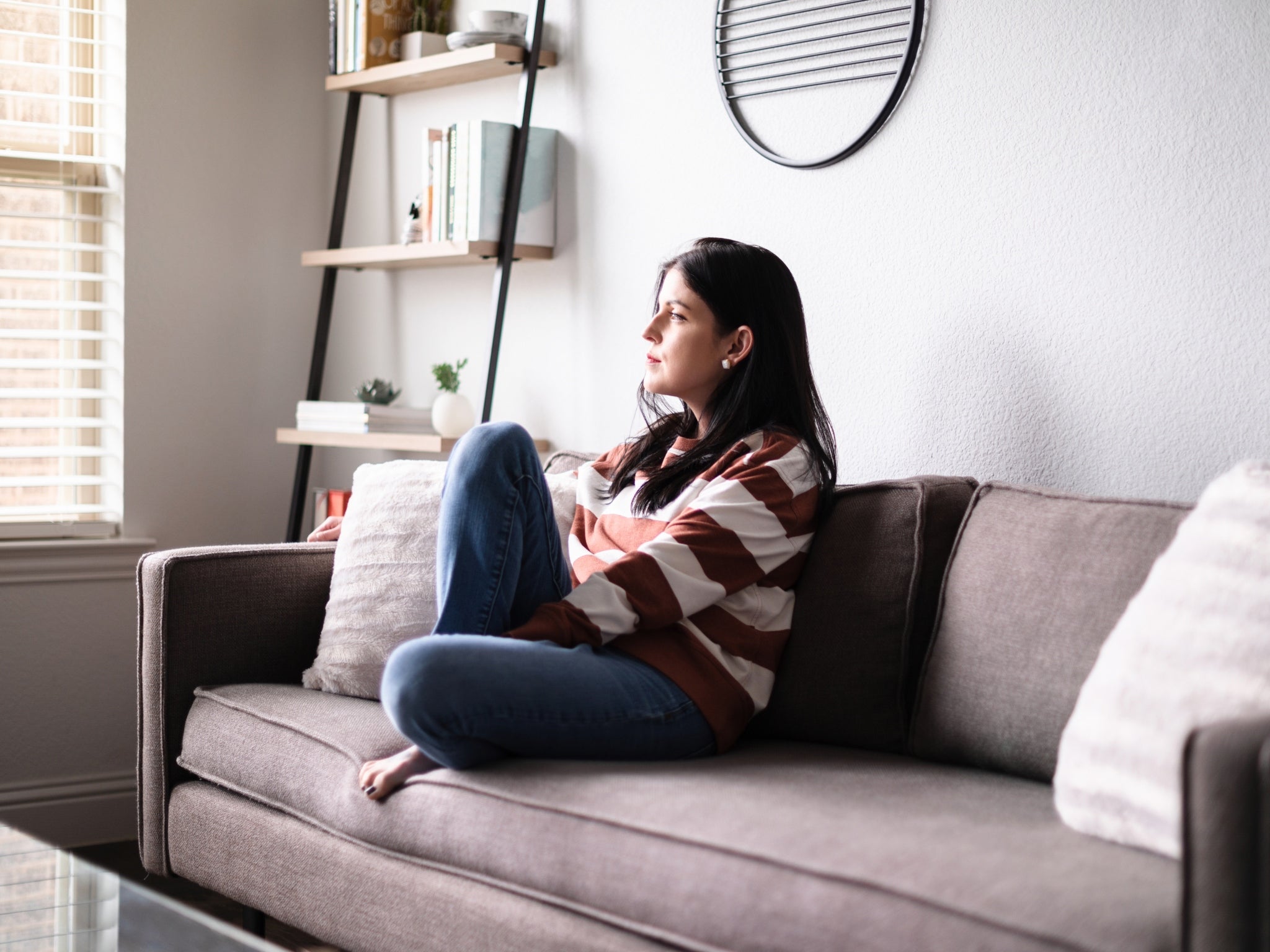How to look after your mental health if you test positive for Covid and need to self-isolate
With Covid-19 cases remaining high, many are still needing to self-isolate

The government has announced that all “Plan B” measures will be removed from Thursday 27 January. The return to “Plan A” will see the work from home mandate lifted and face coverings will no longer be required in indoor venues.
Plan B measures were first announced on 8 December, 2021 as the Omicron variant of Covid-19 caused high case numbers across the country. As a result, many found themselves self-isolating over Christmas and separated from their families.
Current NHS guidelines state that if you test positive for Covid, you must self-isolate immediately. The self-isolation period includes the day your symptoms started (or the day you took the test if you’re asymptomatic) and the next 10 days.
Coronavirus cases reached a peak of over 200,000 per day in the new year and are now sitting at just over 100,000 per day.
If you are vulnerable or are feeling anxious about the high Covid case numbers, you may be considering a self-imposed self-isolation. But whether you’re self-isolating out of choice or necessity, you need to be prepared for the potential toll this could take on your mental health.
Connection to others is a crucial factor of emotional wellbeing
According to a report published by the Office for National Statistics in May last year, around one in five (21 per cent) of adults experienced some form of depression during the winter lockdown months of January to March 2021.
This number increased from 19 per cent in November 2020 and has more than doubled since before the start of the Covid-19 pandemic, when 10 per cent of adults reported experiencing a form of depression.
“Connection to others is a crucial factor of emotional wellbeing. Self-isolating, unfortunately has the opposite effect of the warm feelings that we can get from connecting with others. It is easy to feel disconnected from the world,” Counselling Directory member Sophie Harris tells The Independent.
“This means that our negative thought patterns have space to spiral, often leading us to feel worse. With self-isolation, an element of control is taken away. This can lead to feelings of helplessness. It is understandable why this has such a negative impact on a person’s wellbeing.”

If you do need to self-isolate, Harris suggests using the break as downtime to help you relax or video calling friends and family.
“Give yourself some self-compassion,” she continues. “Try to look after yourself in the same way you may do to someone you love who was in a similar situation. Asking yourself the question, ‘I’m sorry you are going through this, what can I do to help?’ can be a useful prompt in difficult times.”
Fellow Counselling Directory member, Melissa Sedmak says the primary toll self-isolation takes on our mental health is the sense of social isolation and feeling restricted. “We feel that we have lost our freedom,” she adds.
Sedmak continues: “This perceived loss of freedom affects people differently, and while we can still connect with others online, it is not the same kind of connection. An added layer is the monotony that can set in with these restrictions. Different feelings can come up, frustration, anger, sadness, grief, fear and anxiety among others.”
If you do need to self-isolate for any reason, Sedmak suggests incorporating activities you love to your time spent at home, such as having an at-home film night instead of going to the cinema, playing board games or reading a good book. If you can, going outside for a walk in nature can help too.
“Keep connected with people,“ Sedmak continues. “If you haven’t set up a WhatsApp group at work by now, maybe it’s time.
“Introduce some positive vibes as these can contribute to feeling better. What is it that makes you laugh or lifts your spirits up in normal times? Start from that and build on it.”
Sedmak also recommends keeping a regular routine, such as a set bedtime and wake up time, looking after ourselves with nourishing food and indoor activity if you can’t go outdoors.
“Checking with ourselves what we need and what we are missing, thinking of ways to make up for it, and following through, are all steps in making sure our mental health does not suffer too much,” she adds. “And if we get to a stage that it does, then seek help from relevant professionals.”
Join our commenting forum
Join thought-provoking conversations, follow other Independent readers and see their replies
Comments
Bookmark popover
Removed from bookmarks